By John Horvat II
October 3rd is the anniversary of the death of Professor Plinio Corrêa de Oliveira, the founder of the Brazilian Society for the Defense of Tradition, Family and Property, and the inspirer of the TFP movement worldwide. He was a man of unyielding faith, wholly consumed with a burning love for Our Lord Jesus Christ, the Blessed Mother, and the Holy Roman Catholic and Apostolic Church. No better words than his own can describe his life pursuit:
When still very young,
I marveled at the ruins of Christendom
and gave them my heart.
I turned my back on all I could expect
and made of that past,
so full of blessings, my future.
Professor Corrêa de Oliveira defended these sacrosanct ruins with all the courage and ferocity of a rampant lion, which is the symbol he chose for the TFP. During the sixty years of his public life, he stood in the breach, countering every threat and every assault made against the remains of the Catholic order of yesteryear.
This life of heroic struggle led his posthumous biographer, Professor Roberto de Mattei, to call him the “crusader of the 20th century.”
This fighting spirit, nourished by a true devotion to Mary Most Holy, is the legacy he bequeathed to the TFPs around the world.
The TFP web site is proud to publish this article by American TFP Vice President John Horvat II, in loving tribute to Professor Corrêa de Oliveira’s exceptional love for America, and the prayerful confidence he nourished for years, which through the prayers and intercession of Mary Most Holy, God would mercifully deign to use America as a privileged instrument for Christendom’s restoration.
Plinio Corrêa de Oliveira was a man of great zeal who dedicated his life to defend the Church and Christian civilization against a systematic attack that he named “The Revolution.” He was born on December 13, 1908 and died on October 3, 1995.
My experience with Professor Corrêa de Oliveira and his keen discernment of American society began almost by mistake. During a visit to São Paulo, Brazil, in 1986, I happened to be nearby when a group of Americans residing there were to meet with Professor Corrêa de Oliveira. By chance, I also entered into the room and found myself in one of the founding meetings of a special study commission that would discuss American issues.
On his own initiative, Professor Corrêa de Oliveira gathered together several TFP members and spoke to us about his idea of forming a commission that would look at American issues in light of America’s role in history. Although we did not know it at the time, these meetings would later serve as guiding lights for some of our actions in America.
A Profoundly American Commission
This was not to be a commission of abstract thought and theory. It was to delve into the very core of American cultural life. What was so very striking about this commission was its Americanness despite the subtropical Latin atmosphere where it was held.
Consider the very name of the commission. It was not named after any special saint or fitting invocation of Our Lady as it was common in the TFP. It was simply the “American Commission,” and there were times when Professor Corrêa de Oliveira referred to it as the “meeting of the American boys.”
It was American in its concrete and practical goals and mentality.
The Commission had a mission to accomplish. Those who attended can testify that it was a meeting of incredible candor and frankness in which Professor Corrêa de Oliveira showed the “American side” of his soul. You felt you could bring up almost any subject and he would face that problem head on. Professor Corrêa de Oliveira welcomed objections and problems.
Talents and Shortcomings Seen Objectively
However, while the American Commission was indeed very American, it was paradoxically un-American in that it countered many of the defects of our American souls.
He often saw the cold, bottom-line relationships that were molded on the erroneous premise that time is money.
For example, Professor Corrêa de Oliveira commented upon the Americans’ exaggerated horror for abstraction and held meetings that dealt with the ethereal themes of the metaphysical, the marvelous and the sublime. He often saw the cold, bottom-line relationships that were molded on the erroneous premise that time is money. He even saw how this very cold premise affected our relationship with God. He thereby countered this defect by fostering an understanding and goodness that melted the cold exterior and invited us to look beyond the practical.
In reply to our frustration in enduring periods of nuance, complications and hardship, Professor Corrêa de Oliveira would teach us how to deal with these challenges in a truly Catholic way. The bottom line was that brutal frankness did not always resolve the problem, instead, a dose of goodness, charity and diplomacy worked much better.
And so the American Commission was both American and un-American — a testimony to the genius and sanctity of its founder.
My accidental membership in the Commission spanned from those first founding meetings in 1986 to the very last meeting in late 1991. While not residing in Brazil, I attended the meetings during trips there and frequently read summaries of the proceedings.
When the Commission was in need of a researcher in America, Professor Corrêa de Oliveira asked if I might fill that role — an experience cherished to this day since it exposed me not only to his commentaries but to a world of authors and ideas associated with the topics we discussed.
* * *
Laying the Foundations for Future Action
In retrospect, it is easy to lament and decry our own lack of discernment and failure in asking the many questions that would have helped clarify the many enigmas of our days. However, such laments serve as a distraction from Professor Corrêa de Oliveira’s brilliant discernment and to the legacy he left behind. The real question is to appreciate the veritable treasure found in those meetings. Ours is to admire the valuable insights contained therein.
At the same time, his perspicacity in understanding the American soul imposes upon us a terrible responsibility. Ours becomes the task to follow his beacons.
In the years after his death, my appreciation of the American Commission has only grown. I have come to admire Professor Corrêa de Oliveira’s ability to provide a snapshot of the American soul. At times, I have felt the urge to shout “Eureka!” when his explanations solve some perplexing problems. I have had the joy of realizing that in the American Commission meetings, he laid the groundwork for so many future actions of the American TFP.
The Commission laid this foundation not by entering into the ever-changing minor aspects of current events. This was not how Professor Corrêa de Oliveira worked. He liked to solve problems by taking panoramic views of the problems. He complained about modern scholars who become so specialized and so consumed with minutiae that they are unable to perceive the principles behind the problems. Often one must see things from afar or above, as if from an airplane or mountaintop, to understand the logic of the complex forest below.
Panoramic insight is a term that best describes these meetings. Perhaps a brief description of one of these insights would best serve to explain the American Commission’s studies and Professor Corrêa de Oliveira’s keen understanding of the American society.
It is hard to say which was the greatest or most useful panoramic insight of the American Commission meetings. My choice would be Professor Corrêa de Oliveira’s discernment of the mentality of a large swath of the American public opinion that might be called the “Ten Commandments” American.
* * *
Sailing the Vast Conservative Sea
Indeed, unlike many other countries, there is a veritable ocean of conservative thought in America, and from his faraway vantage point, Professor Corrêa de Oliveira was able to characterize the religious majority that makes our country so conservative. He gave us guiding principles that we could navigate in these waters and thus realize effective action.
His perspicacity in understanding the American soul imposes upon us a terrible responsibility. Ours becomes the task to follow his beacons.
He observed that all too often America is perceived in the context of Hollywood or the media. American visitors sometimes express surprise when they observe a different America than the one that appears on television. In fact, even we Americans tend to believe this portrayal and fail to realize the full extent of our conservativism.
We needed an authentic vision of America. One important part of this vision was what Professor Corrêa de Oliveira called an American consensus, the spiritual glue that holds America together. It is a general agreement or accord whereby we make a commitment to get along as Americans.
This consensus was forged at the birth of our nation. In fact, immediately after the Revolutionary War, a religious crisis broke out. No Protestant group held a clear majority and there was no more European influence to look to for guidance. The Protestant churches were disorganized and on their own. The war left the colonies in religious chaos, and the morality of the country was disorganized.
Religion itself was threatened by a new “freethinking” spirit that was spread by the followers of Voltaire and Rousseau. Such a moral atmosphere could easily degenerate into rapid and total amorality. America had to adopt a religious defense against this new spiritual onslaught.
Professor Corrêa de Oliveira contended that America adopted a kind of religious consensus. It was not a union of a single church and state forbidden by the Establishment Clause, but a union of the State and an unwritten agreement of religious consensus. It was a consensus whereby Americans went along with a set of working rules in which certain things against God were prohibited.
The State maintained a certain reverence for a vague God it trusted. A consensual Christian moral code loosely based on the Ten Commandments was adopted by the State and embedded in our laws. This consensus became the regulator of our morality and the spiritual glue that holds us together.
America: Officially Nondenominational, yet Religious
Thus, Professor Corrêa de Oliveira noted that while the American State has no denomination, it would be a gross exaggeration to say it is not religious. In practice, the American official religion is this general ecumenical consensus. Since this consensus was Christian, the nation is vaguely Christian.
As long as you worship some kind of God, preferably Christian, you are part of that consensus maintaining Godliness, patriotism and familial devotion. You are part of the consensus as long as you maintain a vague respect for God’s law, as a kind of insurance policy guaranteeing public order.
American authors and sociologists have often commented on the unique American relationship with religion. In American Politics, Samuel Huntington noted that Americans give to their nation and its corresponding culture “many of the attributes and functions of a church.” Sociologist Robert Bellah points out that America established a “civil religion” that provided “a religious dimension for the whole fabric of American life, including the political sphere.”
Those who attended the “American Commission” can testify that it was a meeting of incredible candor and frankness in which Professor Corrêa de Oliveira showed the “American side” of his soul.
Even today, in the middle of a Cultural War destroying religious conviction and morals, huge swaths of the American public have signed on and continue to sign on to this vague consensus. The practical consequences of this attitude are very important and quite apparent in today’s political climate. When the majority of a country reaches a consensus that all should worship some kind of God, the nation becomes very religious.
Today, no one disputes, yet few can explain, the fact that Americans are religious. Religious devotion sets America apart from its closest allies. Today, religious America is an obstacle in the constant worldwide secularist assault upon the very idea of religion.
The Moral Issue
A consequence of this is the emergence of a large portion of the population that respects a moral code loosely based on the Ten Commandments, even if just for the sake of public order. For this reason, America tends to be moralistic. It tends to turn issues into moral problems and seeing them in absolute terms. Indeed, the moral issues contained in the Decalogue are precisely those that polarize America today. These Americans professing unquestioning belief in God and His law are far more willing to mix faith and politics than people in other countries. American conservatives coalesce around the issues of abortion, school prayer, pornography and homosexuality. In fact, America is the only developed country with huge protest movements around moral issues. These issues do not go away but appear yearly on the legislative agenda.
Professor Corrêa de Oliveira remarked how the primary difference between the conservative movement in Europe and America is exactly our moralistic outlook. “American public opinion has an attachment to the notion that the Commandments must be followed,” he noted, “and attaches disgrace to those who openly transgress them.” That is not to say America is without sin. Sin and immorality abound here. However, the mere existence of this attachment to a moral law is a constant call to return to it. In a world where morals are fast disappearing, anyone who holds on to the Ten Commandments is a conservative obstacle. For this reason, as much as most Americans refuse to believe it, America is the great conservative country.
The “Ten Commandments” American
This general idea of the “Ten Commandments” American is just one of the many of the panoramic perspectives Professor Corrêa de Oliveira developed in the American Commission.
Here is where the genius of Professor Corrêa de Oliveira can be seen. Fulfilling his role as founder and mentor of the TFP movement worldwide, his goal was not to specialize in minute aspects of the American reality, but to form a school of action based on general panoramic views. While it is debatable how well we corresponded to this vision, one cannot deny the brilliance of his strategy. Based on such panoramic insights, the American TFP was free to act as it saw fit by merely applying these principles and insights to concrete events and issues.
In the case of the “Ten Commandments” American, Professor Corrêa de Oliveira suggested that the action of the American TFP must go beyond our main focus, which will always be that minority of traditional anti-Communist Catholics. We must adapt to the American circumstances and broaden our outreach to include all aspects of American cultural conservativism, thus turning this great moralistic consensus, defective though it may be, into an obstacle to the Revolution described in the context of his book Revolution and Counter-Revolution.
A Diversified Struggle on Many Fronts
Thus, throughout its long history, the American TFP took consistent anti-Communist positions against the worldwide Communist offensive that marked the Cold War era. We especially attacked the position of the “Catholic left” that sought to reconcile the irreconcilable doctrines of Catholicism and Marxism. Today, we still point out the continued misery and persecution of the Church found in China, Cuba and other countries still suffering under the Communist yoke. We denounce the lingering remnants of liberation theology. We have also opposed social movements inside the Church that would seek to change Church teaching on moral issues or take advantage of scandals inside the Church to “democratize” its structures.
The American TFP campaigns in New York City in mid-2000 against communism. Thousands of statements were distributed in regards to the Elian Gonzales case.
However, during the eighties, we were encouraged by Professor Corrêa de Oliveira to develop another line of action and join those in the American conservative movement who developed the idea of a cultural conservatism focusing on the issues of concern to the vast number of “Ten Commandments” Americans. Such actions include joining and encouraging the opposition to abortion, same-sex “marriage,” blasphemy, flag burning and so many manifestations of the Revolution that are polarizing America.
Indeed, in today’s bitter climate of the Cultural War, these issues have taken center stage among the so-called values voters. They are obstacles in the slide toward immorality. They are leading to an undeniably growing polarization that seems to suggest that the original American consensus is unraveling and has now reached a point where this precarious coexistence with liberal Americans no longer works.
Yearning for Authenticity
The intensity and depth of the present debate only makes Professor Corrêa de Oliveira’s perception of the American reality all the more timely since we are reaching a crucial point in America’s history. In the eighties, Professor Corrêa de Oliveira spoke of a profound shift in the mentality that he perceived in some Americans. He spoke of a new type of American, tired of the artificiality and wanting quality and authenticity. In a secular wasteland, this American yearns for the sacred, the symbolic and the sublime — an American who sees and admires things more important than self. He upholds superior values and defends a higher law.
These Americans are now questioning the false premises that state the sole purpose of life is the unrestrained quest for egoistical living and the pursuit of an exclusively material happiness. They see the exhaustion of the ideas that have turned America upside down since the sixties.
Thus, Professor Corrêa de Oliveira’s keen discernment of the American reality projects itself into the future. The great moral battle he foresaw is not over. A great internal debate over the course of America’s future must unfold. However, through his panoramic insights, the American TFP has the elements to join with other Americans to defend our beloved Republic. We have the courage to proclaim a true, authentic and holy patriotism whereby we yearn to see America not as a mere obstacle but an authentically counter-revolutionary nation.
As an American, I am grateful for Professor Corrêa de Oliveira’s great zeal for my country. However, I know that his concern was born from an even greater love of Christian civilization and dedication to the Catholic cause to which he called all TFP members to participate.
The source of his strength was the Church, the supernatural life and above all, a tender devotion to Our Lady. He taught that these are the things that move God to act in history and where the fate of nations is decided. It is here where Professor Corrêa de Oliveira differs from those conservatives who put their future in the frail hands and fickle hearts of men.
His confidence in the final victory of Providence gave special impetus to his methodical and concrete human action. He truly believed what he wrote in Revolution and Counter-Revolution “that nothing can defeat a people who are virtuous and truly love God.”

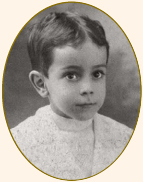
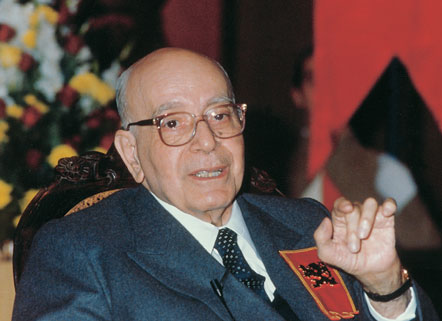
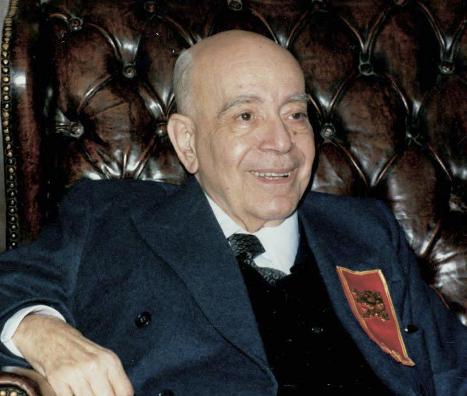
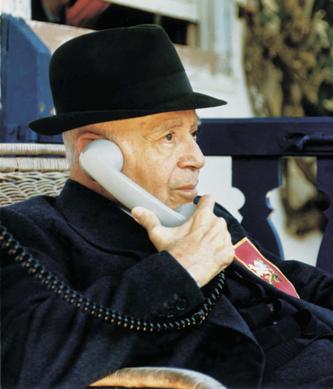
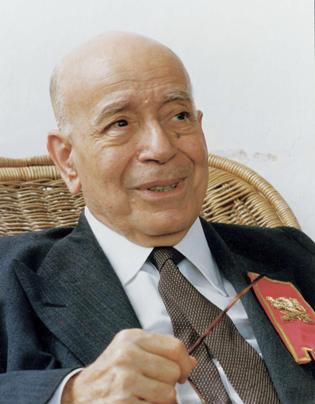
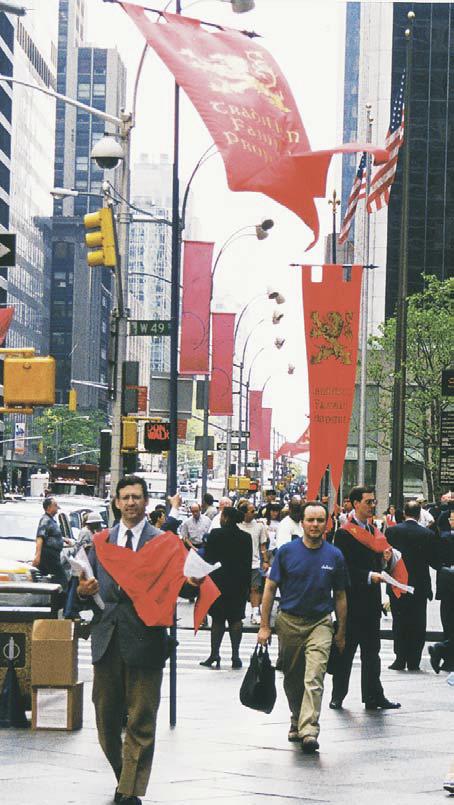
No comments:
Post a Comment